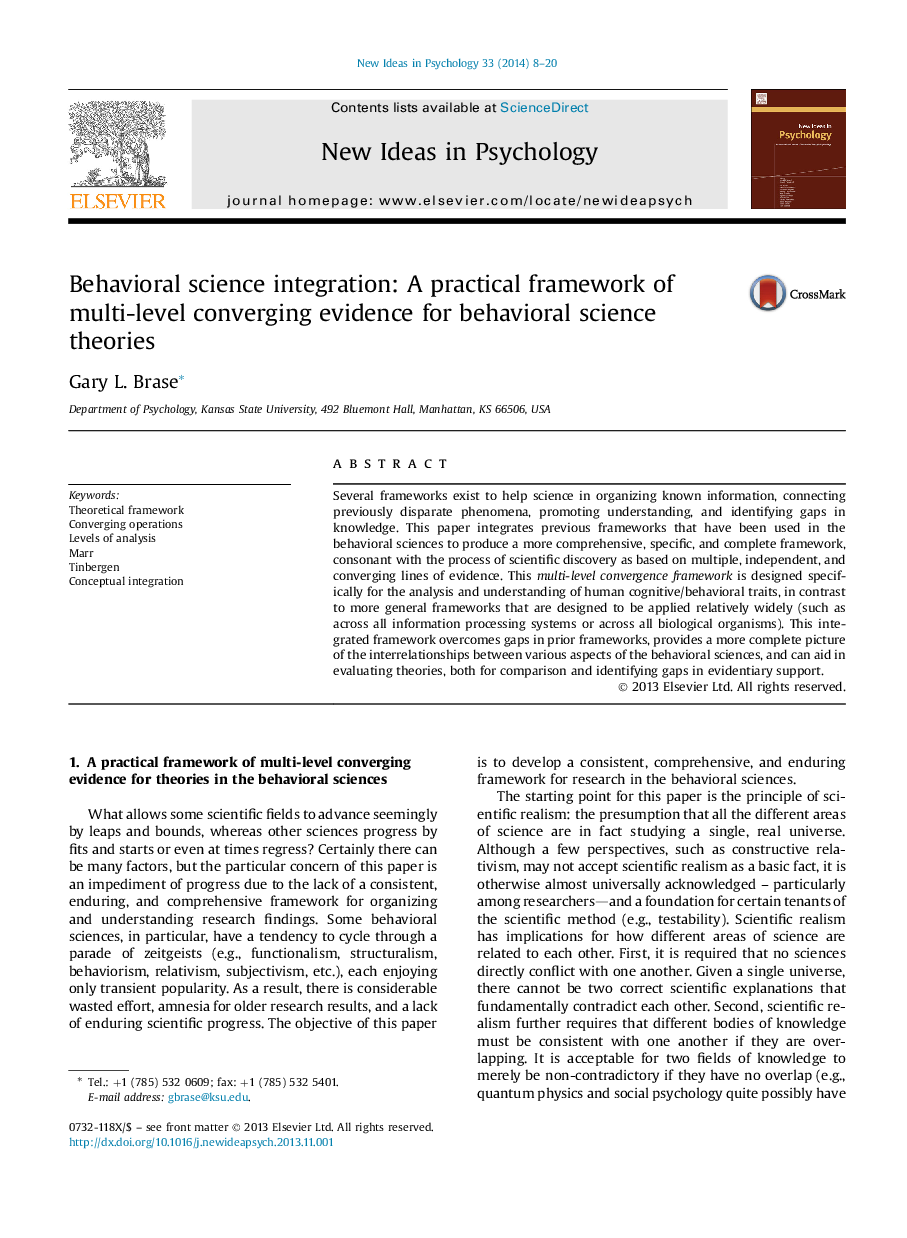| کد مقاله | کد نشریه | سال انتشار | مقاله انگلیسی | نسخه تمام متن |
|---|---|---|---|---|
| 331519 | 544527 | 2014 | 13 صفحه PDF | دانلود رایگان |
• Describes a multi-level convergence (MLC) framework integrating behavioral sciences.
• MLC framework is more comprehensive, specific, and complete than previous frameworks.
• MLC framework better fits with principles of scientific discovery.
• MLC framework is specifically tailored for effective use in the behavioral sciences.
• MLC framework is both clarifying of existing research and can guide future research.
Several frameworks exist to help science in organizing known information, connecting previously disparate phenomena, promoting understanding, and identifying gaps in knowledge. This paper integrates previous frameworks that have been used in the behavioral sciences to produce a more comprehensive, specific, and complete framework, consonant with the process of scientific discovery as based on multiple, independent, and converging lines of evidence. This multi-level convergence framework is designed specifically for the analysis and understanding of human cognitive/behavioral traits, in contrast to more general frameworks that are designed to be applied relatively widely (such as across all information processing systems or across all biological organisms). This integrated framework overcomes gaps in prior frameworks, provides a more complete picture of the interrelationships between various aspects of the behavioral sciences, and can aid in evaluating theories, both for comparison and identifying gaps in evidentiary support.
Journal: New Ideas in Psychology - Volume 33, April 2014, Pages 8–20
